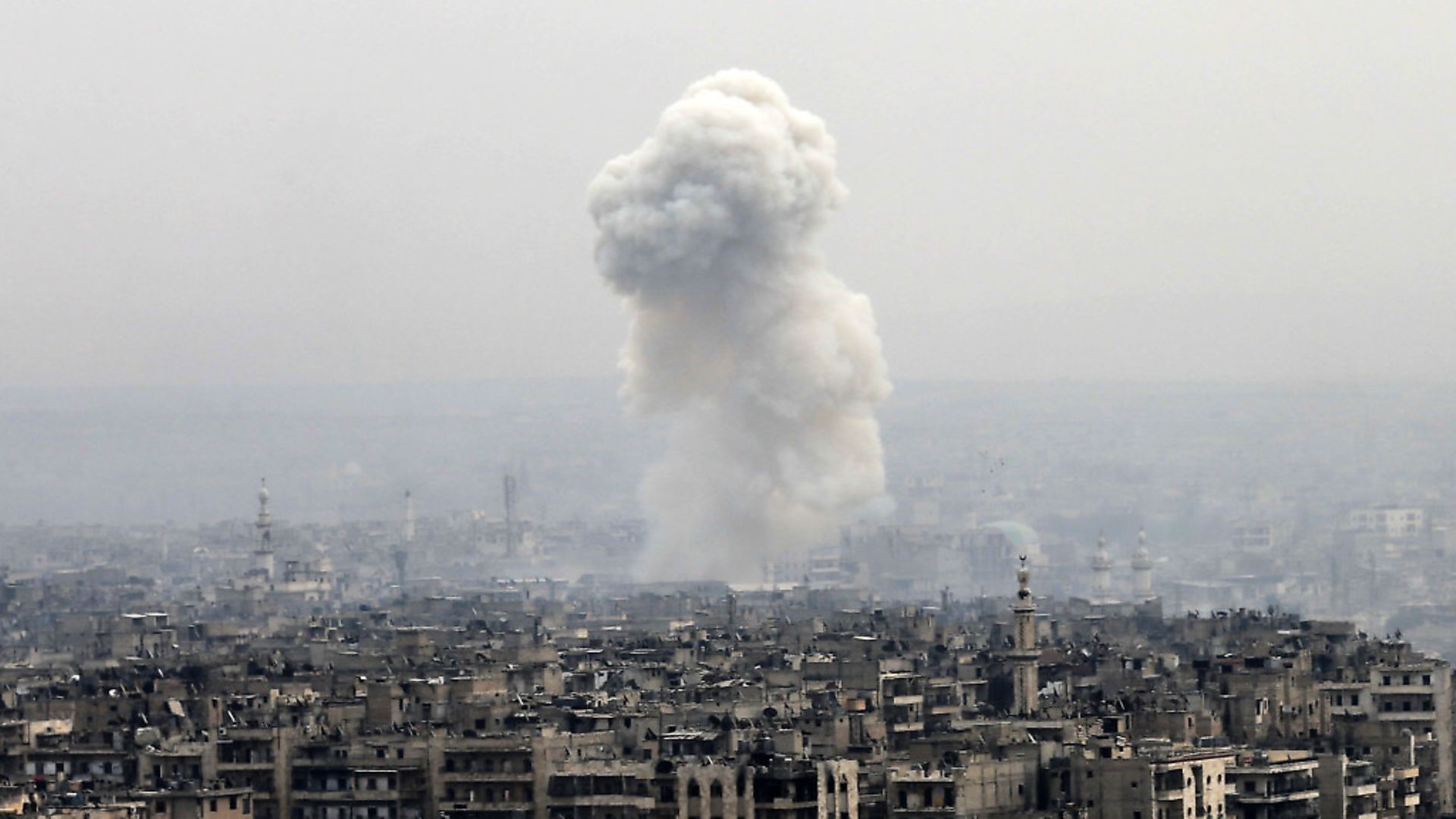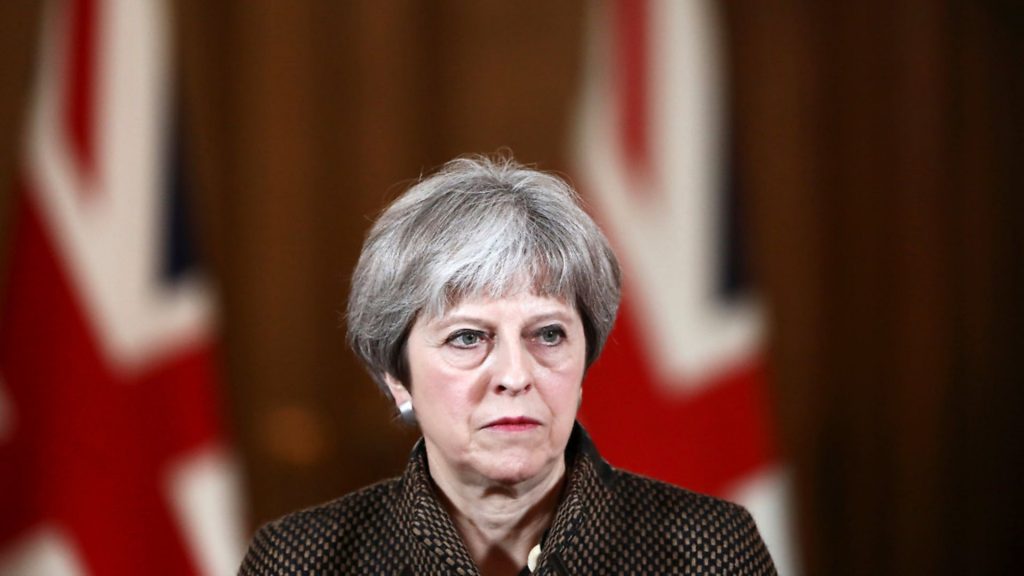
There is a strong case for action in Syria, argues ANDREW ADONIS. But Theresa May’s problem is she can’t make it

So much for ‘taking back control’. Parliament was neither summoned, nor asked for authorisation, before the bombing in Syria. The House of Lords, where I sit, did not even debate the emergency until Thursday, six days after the event.
The idea that our government is gagging to give parliament back control is a Brexit myth. We all know why Theresa May was so reluctant to recall MPs. She feared that, as when David Cameron sought parliamentary approval for bombing in Syria in 2013, she might not get it. It seems that the more likely that MPs will not do the government’s bidding, the less likely that they be given the opportunity.
The Syria bombing doesn’t bear much better scrutiny in substance. May’s essential argument, that the bombing in Syria was ‘strong enough to deter but weak enough not to provoke the Russians’, is so obviously nonsensical it explains why she didn’t wish to make it in parliament. This was ‘gesture bombing’ of carefully selected second-order military installations in order to be seen to be doing something – but not too much – in response to Syrian dictator Bashar al-Assad’s apparent chemical weapons attack, enabled by the Russians, on civilians in Douma.
Donald Trump called it ‘precision strikes on targets associated with the chemical weapon capabilities of the Syrian dictator’. Decoded, that means attacks carefully targeted not only to minimise civilian casualties – which so often discredit action of this kind as reporters are guided to the sites of the strikes by the dictator being attacked – but more particularly to avoid provoking a ‘disproportionate response’ (in the sanitised diplomatic language of these situations) from Vladimir Putin.
Time and again Putin has shown contempt not only for international law (witness Crimea and Salisbury) and chemical weapons conventions (witness Syria and Salisbury) but also Western power and pretensions – witness his dismemberment of Ukraine, reminiscent of Hitler’s treatment of Czechoslovakia in 1938/9.
The West clearly has to contend with a massive Putin problem and threat, as well as unspeakable war crimes in Syria, where Putin is propping up Assad, and a humanitarian catastrophe which engages the West morally and directly, because of the ongoing refugee crisis that Syria is inflicting on its neighbours and Europe.
The case for May’s action – which I support – is that we in Britain have recently been attacked by the Russians and are threatened by Putin at large. Trump and Emmanuel Macron supported us after Salisbury. They were intent on these limited air strikes in Syria, so we had to support them.
It is a vital British and European interest to demonstrate to Putin that Trump is on our side, not his. Putin may not understand this because of Trump’s erratic tweets and might thereby seriously miscalculate, perhaps by invading the vulnerable Baltic states in a widening of his Ukrainian enterprise and quest for fascist nationalistic glory. For the same reason we should stick with the EU, especially with dodgy Trump ‘leading’ the free world.
The problem for May was that she could hardly say any of this in parliament. She had to make humanitarian and strategic arguments about helping Syria itself and eradicating chemical weapons. But these arguments do not exist.
The bloodshed and conflict in Syria are not largely caused by chemical weapons, however abhorrent. Other weapons are destroying the lives of hundreds of thousands of people, and their communities, with impunity. Trump, Macron and May have made clear that they intend neither to intervene in Syria more widely, nor to engage in direct conflict with the Russians over chemical weapons. So this is not prelude to a Western strategy to topple Assad and seek an end to the civil war or chemical weapons.
Was there a moral case for the action, even if it did nothing to help Syria? Hardly. We have moral duties to the dispossessed – and should be taking our fair share of Syrian refugees, particularly parentless children. We aren’t. And May does not propose to do so. That is the really shameful non-action of our government.









